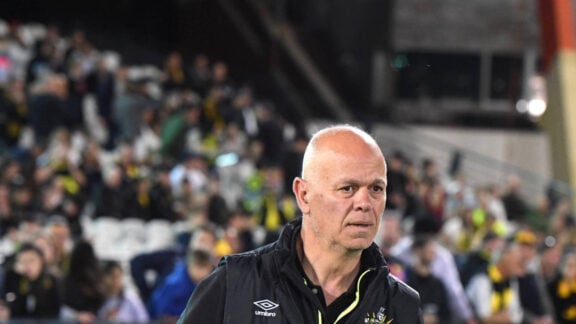For the first time in 47 years, Melbourne Mint strikes currency again, marking its return into numismatics with a highly detailed silver coin, depicting Australia’s most infamous outlaw, Ned Kelly.
The last coin struck by Melbourne Mint was the humble one-cent copper coin in 1968. The mint returns to issuing collectable coinage through its new numismatics arm, Melbourne Mint Coins, which will provide numismatic enthusiasts with access to the best coins from around the world.
Since it was reopened in late 2012, Melbourne Mint has been steadfast in re-instating Victoria as Australia’s gold state; holding regular educational events on the state’s rich gold history and resurrecting Melbourne’s iconic Royal Mint building to its former glory. Greek Australian Peter August, the mint’s CEO, has a long-standing passion for gold, among many other things.
“I truly believe holding gold is critical to safeguarding wealth, and our extensive involvement in the industry has given us the expert knowledge to guide both seasoned investors and amateurs alike,” August states.
“I like to think that the global economy has many chances laid ahead.”
Melbourne Mint’s CEO believes gold is good to have as an insurance policy that could counterbalance the loss of value in regards to currency fluctuation.
“I don’t advocate people putting all their money into gold, but certainly investing some money to gold is a good security against who-knows-what.”
“You never know what will happen. Historically speaking, the majority of people is caught by surprise by the financial predicaments which might occur.”
Setting gold aside, Melbourne Mint’s 2015 Ned Kelly Coin, which was released on 2 March, is a limited design with only 5,000 pure silver pieces available for sale. The coin is already receiving a lot of interest within the numismatics community and more broadly. Showcasing the outlaw wearing his famous ‘bulletproof’ helmet, the 1/10oz 99.9 per cent silver collectible proof pays homage not only to Kelly but also to the Old Melbourne Gaol where he met his demise.
“Was he a victim or villain? Was he unjustly treated or was he just a common criminal,” August asks.
“Obviously, for him to still be vivid in the imagination and the minds of people suggests that there’s a portion of our community that believes he was unjustly treated.”
“There are a lot of people – not only collectors – particularly fond of the Ned Kelly story and of the mint – who can identify with the products, so we are very happy with our marketing efforts this far,” he adds.
As explained by Mr August, because Ned Kelly was Victorian, he is very closely identified with the state of Victoria. In relation to the mint’s return to numismatics, the controversial persona is a good theme. On another note, as of 2 March, Melbourne Mint will be able to utilise the Queen’s fifth portrait on its coinage, provided by the Royal Mint in England.
“I’ve always had a passion for numismatics, history and gold. Being in the numismatic industry gave me an outlet to follow those passions whilst making a vast spec of historical interests available,” he tells.
“I could delve into my hobby turned profession and feel like I haven’t really been working a day of my life because I was enjoying every moment of it.”
Apart from being the founder and CEO of the Melbourne Mint, August is the managing director of Australian Bullion Company (ABC), owns a professional beef cattle operation in East Gippsland Victoria called Thriving Future and finds time to focus on his latest passion, project development.
“I was into property development at the same time as I was doing the gold business. We are witnessing a huge rise converting those properties into investment properties up for rent,” he explains.
“On the other hand, the beef cattle operation is a thriving business as people will always want food. I really love it.”
August has had a significant measure of financial success, but the most important – the only even measure of success he likes to take pride in – is his family.
“What matters the most is how much they love me and care about me, how much I care for them and how I see my family grow,” he confesses.
“I have a lovely wife, Helen, with whom I’m celebrating our 25th anniversary this year, and three wonderful children, a 14-year-old son and two daughters 18 and 17 respectively.”
How does a business tycoon, roaming the world while supervising so many enterprises, manage to juggle between family and business? In spite of the many hurdles and responsibilities that he has come across, in hindsight, he feels there are more upsides than downsides in this business.
“The beauty of it all lies in the fact that I don’t have to do anything at the same time. It is actually a time management issue,” he stresses.
“The more efficient time managers are able to do more things, because they can just efficiently manage their time. If you want something done, ask a busy person.”
With passion and integrity in his in armoury, he and his team were able to grade their businesses in wholesale and retail marketing to the level of what they consider a position of pre-eminence in the market place.
“We are very fortunate but it took a lot of effort as we’ve stuck to our plan, always did everything with the highest integrity which led to more and more people wanting to do business with us,” he admits.
“I don’t want this to sound arrogant in any way, but we have been extremely dedicated and serious about nurturing and looking after our clients in the best possible way we can. That’s why we continue to grow.”
Generally he likes to focus on the challenges ahead and not on the problems. For August, there are no problems, only challenges that seek solutions.
“Sometimes, the most shining examples of human endeavour and human ingenuity are born in the midst of a crisis,” he says.
“History is filled by numerous people coming together at the right time and amazingly saving the day.”
Melbourne Mint’s CEO is even optimistic about the Greeks. His mother is from Corfu and his wife hails from Rhodes. He has always felt extremely connected to his Greek heritage.
“Helen’s dad was the Greek Orthodox priest in Canberra for 50 years, Father George Pappas, an extraordinary man and role-model.”
“I’ve sort of been on the fringe of the Greek community myself.”
He remembers many stories shared by his late mother after WWII, when Greece went through hyper-inflation and people lost their life savings overnight.
“Their savings became worthless. People who held gold at the time counterbalanced that loss of value as gold went up.”
“The worst case scenario for Greece is high-inflation or hyper-inflation. If Greece leaves the eurozone and reintroduces the drachma, in order to attract people to invest to the drachma, they are going to have to wait for interest rates, even though the coin could be depreciated even more.”
When Greece converted to the euro the prices rose sky-high and people couldn’t cope, as salaries remained the same. The older generations found it especially hard to make the conversion before any exchange as the 50 drachma coin looked almost identical to the 20 cent euro one and the 20 drachma coin to the 50 euro cent coin. It was really difficult for them to comprehend why their money was suddenly worth so little.
“One of the good things about having your own currency and being in control of your own currency is that you can depreciate it if things start to get too expensive.
“It affects everybody and this is how you get hyper-inflation. Whereas if your bank controls your own currency, you don’t have the ability to control your economy.”
Peter August is a genuinely positive thinker and therefore believes Greece will make it through the crisis, as will the global economy.
“Adversity can bring out the best in some people,” he says.
“I don’t put on a bleak, despairing look thinking about the future … however, I do hold back some gold just in case.”









